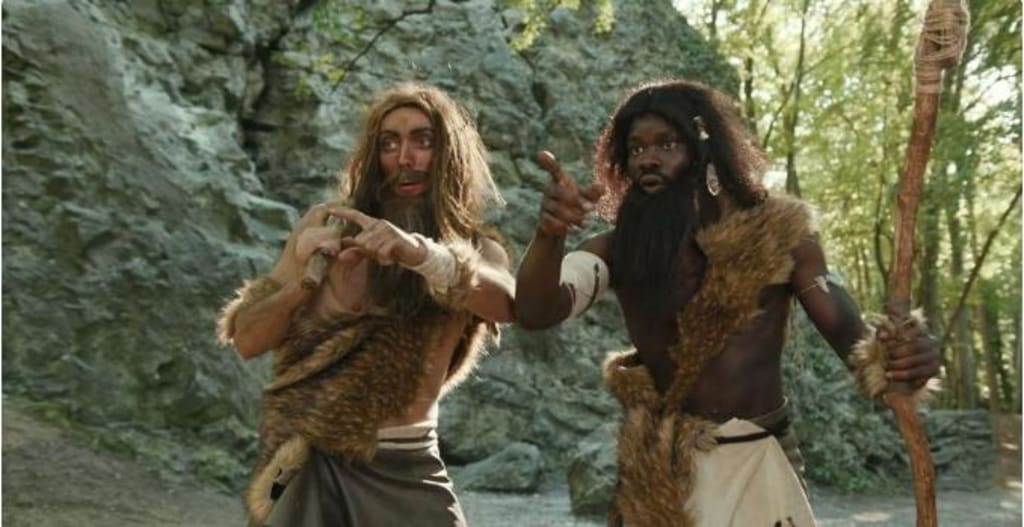History of Human Evolution
Six recent discoveries that have changed the way we think about human origins

The historical scientific study of human evolution has given us a comforting order to things. It has portrayed humans as smarter, more intelligent, and more caring than our ancestors.
From archaeological reconstructions of bent, furry, savage Neanderthals to "caveman" movies, our ancient ancestors have received bad press.
In the past five years, discoveries have disproved this unbalanced view.
Six revelations are striking.
1. There are more human species than we thought
Species such as Homo Long were not identified until 2018, and there are now 21 known human species.
In the past few years, we have realized that our Homo sapiens ancestors may have seen as many as eight different types of humans, ranging from robust and sturdy species (including Neanderthals and their close relatives, the Slovenians) to short (less than 1.5 meters tall) and small-brained humans (such as Grenadians).
But Homo sapiens are not an inevitable evolutionary destination. Nor do they fit into any simple linear progression or ladder of progress. Dinar brains may have been smaller than those of chimpanzees, but there is evidence that they were culturally sophisticated and mourned the dead.
Neanderthals created the art of symbolism, but they were different from us. Neanderthals had many different biological adaptations, which may have included hibernation.
2. Hybrid humans are a part of our history
Human hybrid species, once considered science fiction by experts, may have played a key role in our evolution. Evidence for this importance comes from genetics. Clues are found not only in the DNA of our species (which often includes important genes inherited from Neanderthals) but also in the bones of hybrids.
An example is "Danny", a girl with a Neanderthal mother and a Denis ova father. Her bones were found in a cave in Siberia.
3. We are lucky
Our evolutionary history is more confusing than scientists used to think. Have you ever had back pain? Or stared jealously at your dog as he ran over rough terrain?
That should be enough to show you that we're far from fully adapted. We have known for some time that evolution will piece together solutions to cope with ecosystems that may have changed. However, many of the changes in our human evolutionary lineage may be the result of chance.
For example, isolated populations have a characteristic, such as some aspect of their appearance, that has little effect on their survival, and this form continues to change in future generations. Neanderthal facial features (such as distinct eyebrows) or physical characteristics (including large ribs) may simply be the result of genetic drift.
Genetics, the field in which genes are activated only in specific environments, also complicates matters. For example, genes may predispose people to depression or schizophrenia. However, they will only develop this condition if something that happens to them triggers it.

4. Our destiny is tied to nature
We may imagine ourselves as masters of our environment. But it is increasingly clear that ecological change shapes us.
The origins of our species coincide with major changes in climate as we become more distinct from other species at these points in time. All other human species appear to have become extinct as a result of climate change.
The three main human species, Homo erects, Homo Heidelberg, and Homo neanderthals, became extinct with major changes in climate, such as the Adams event. This was a temporary collapse of the Earth's magnetic field 42,000 years ago that coincided with the extinction of Neanderthals.
5. Kindness is an evolutionary advantage
Research has uncovered new reasons to be hopeful about the future of human society. Scientists used to believe that the violent part of human nature put us one step up the evolutionary ladder.
However, there is evidence of the caring side of human nature and its contribution to our success. Ancient skeletons show clear signs of surviving disease and injury, which would have been difficult, if not impossible, without help.
The trajectory of human compassion can be traced back 1.5 million years. Scientists have traced medical knowledge back at least as far as the Neanderthal period.
Altruism has many important survival benefits. It allows older community members to pass on important knowledge. Health care allowed skilled hunters to survive.
6. We are a sensitive species
Evolution has made it easier for us to expose our emotions than we might think. Like domesticated dogs, with whom we share many genetic adaptations, such as greater tolerance for the outside world and sensitivity to social cues, human hypergamy comes with a price: emotional vulnerability.
We are more sensitive to the feelings of those around us, more susceptible to social influences, and we are more prone to mood disorders, loneliness, and depression than our predecessors. Our complex emotions may not always be pleasant, but they are part of the critical shift that creates large, connected communities. Our emotions are critical to human cooperation.
This view of our place in the world is far less reassuring than it was five years ago. But the idea that we are selfish, rational, and entitled to privilege in nature is not working. Just look at the latest reports on the state of our planet.
If we accept that humans are not the pinnacle of progress, then we can't wait for things to get better. Our past shows that our future will not get better unless we do something about it.
About the Creator
Cindy Dory
When you think, act like a wise man; but when you speak, act like a common man.






Comments
There are no comments for this story
Be the first to respond and start the conversation.